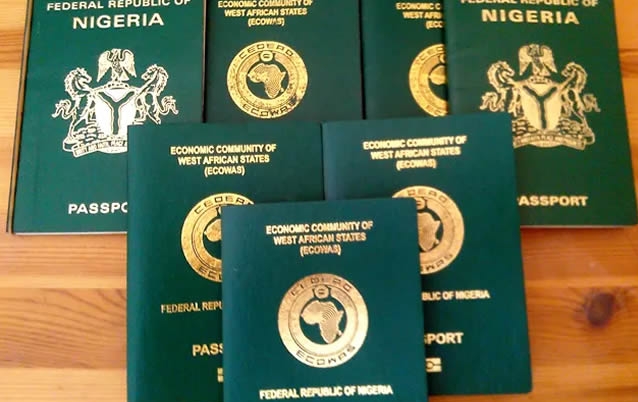
Nigerian international passports
FG Defends Passport Fee Hike to N100,000, N200,000, Says It Will Curb Corruption, Ensure One-Week Delivery
The Federal Government has justified the significant increase in passport application fees, stating it is essential to fund quality improvements, eliminate corruption, and guarantee that Nigerians receive their passports within one week of application.
Effective September 1, 2025, the Nigeria Immigration Service (NIS) announced new fees of ₦100,000 for the standard 32-page, five-year passport and ₦200,000 for the 64-page, 10-year passport for applications made within Nigeria.
Notably, the fees for Nigerians applying from the diaspora remain unchanged at $150 and $230, respectively.
This is the second major fee increase in just over a year, following an adjustment in August 2024.
The Minister of Interior, Dr. Olubunmi Tunji-Ojo, defended the new pricing at a ministry retreat in Abuja.
He framed the hike as a critical part of a broader reform agenda to overhaul a broken system historically plagued by long delays and extortion.
“Our target is very clear: within one week of enrolment, every Nigerian should have their passport in hand. Not just delivering quickly, but delivering quality passports that reflect our integrity as a nation,” the Minister stated.
He shared a personal anecdote to illustrate the past problems, revealing that even he had to pay “hundreds of thousands” to secure a passport for his 12-year-old daughter despite his official position at the time.
To achieve the new one-week delivery goal, Tunji-Ojo outlined key reforms: A new centralised personalisation centre, described as the largest in Africa, will handle all printing, drastically increasing capacity and security, Passport Control Officers (PCOs) will be stripped of their power to approve or delay applications, a move designed to end the practice of officials demanding bribes to “settle” applications, and the approval process will be centralized to minimize human interaction, which is identified as the primary source of corruption.
The Minister emphasized that these measures are crucial to protecting the integrity of the Nigerian passport itself, preventing it from being illegally acquired by non-Nigerians, as had happened in the past.
He concluded that the ultimate goal is efficiency and national integrity, even if the decision is unpopular.
